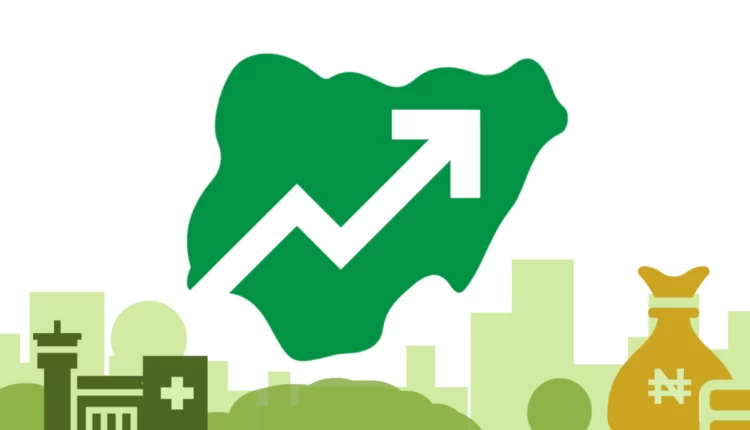Foreign Direct Investment is a process of attracting investors into critical sectors that require the injection of funds for the accelerated development of a country like Nigeria. FDIs are more critical to Nigeria’s growth and development than ever before.
It is not surprising therefore that President Bola Tinubu’s administration has set FDI as one of its priority policies towards stabilising the country’s economy.
The decision was necessary due to the decline coursed by the continued drop in foreign investment inflows in the first three quarters of 2023 twenty-six point seven percent to $ 3.9 billion due to political uncertainty and increased production costs.
Since he assumed office on May 29th, 2023, President Tinubu has embarked on several foreign trips to engage with heads of governments, institutions, and many private investors on the need to invest in Nigeria. To achieve this, the President prioritised the formulation of policies needed for an enabling business environment for investments.
Some of such policies include the unification of the exchange rate of Nigeria’s currency, the Naira, against other currencies; foreign exchange reforms to ease the repatriation of profits by multinationals; streamlining of tax systems; creating tax incentives as well as strengthening of relevant institutions like the Nigerian Investment Promotion Council, NIPC, among others.
All these policies and efforts, no doubt, have continued to yield positive results. Data from the National Bureau of Statistics, NBS, shows that the total Foreign Direct Investment that came into Nigeria in the first quarter of 2023 before the advent of the present administration was forty-eight million dollars occasioned by the uncertainties in the political atmosphere in the country at the time and other macro-economic policies.
However, between April and June of 2023, the flow of FDI increased to around 86 million dollars, signaling an improvement over the first quarter figures and also displaying an improved confidence in the Nigerian economy on the part of investors as a result of the economic policies being pursued by the Tinubu administration.
Going a step higher, in March of 2024, during the 2023 Leadership Annual Conference in Abuja, the Minister of Information and National Orientation, Mr. Mohammed Idris announced that President Tinubu’s administration had attracted $30 billion in Foreign Direct Investment to shore up the Nigerian economy since assuming power.
The investments were committed to the real sectors of the economy like healthcare, oil and gas, manufacturing, and telecommunications, among others. Notable among the investments already committed is the two-fold Germany’s $500 million renewable energy and gas export deal with Nigeria.
Under this agreement, Nigeria, on one part, has a target of attracting $500m investments dedicated to renewable energy projects, with a special focus on rural communities across the country, while it has also committed to supply 850,000 metric tonnes of natural gas annually to Germany with an increase to about one point two million metric tonnes with a commencement date in 2026.
Other agreements include the Total Energy deal with the Nigerian National Petroleum Company Limited to carry out methane detection and measurement campaigns using its advanced drone-based AUSEA technology on oil and gas facilities in Nigeria.
There is also the I-Dice deal with the government of France to boost the digital and entrepreneurship sector in Nigeria and the Siemens Energy $2.3 billion agreement that involves upgrading fourteen existing power transmission substations and establishment of twenty-two new transmission substations to increase grid capacity to 12,000 megawatts.
These investments alongside others are expected to help shore up the economy through the provision of jobs and boosting of local production.
However, that is not to say Nigeria has got it all going well in attracting Foreign Direct Investment because more effective and timely policies are still needed to stabilise the economy to attract investors further to make the country a top investment destination of first choice in Africa.
As such, it is expected that both the fiscal and monetary authorities would work together to create and harmonise policies for a stable macroeconomic environment with moderate inflation, as well as stable or predictable exchange and interest rates in Nigeria.
President Tinubu’s administration should demonstrate more commitment to tackling insecurity and ensuring the sanctity of the rule of law because, for investors, adherence to the laws of the land with an assurance of the safety of lives and properties are necessary incentives for investment.
The government needs to ensure the provision of adequate infrastructures like roads, rail, and power to attract the needed investments that will enhance the country’s landscape and make it conducive for businesses to thrive.
The Nigerian government moving forward should strengthen the regulatory frameworks of relevant institutions to ensure effectiveness and transparency.
The commitment of President Tinubu’s administration to the actualisation of all these, coupled with the continuous engagement of prospective investors by the President and his economic team, is expected to further push the investment drive. This in turn would go a long way in putting Nigeria in the spotlight as an investment destination of choice in Africa and globally.

